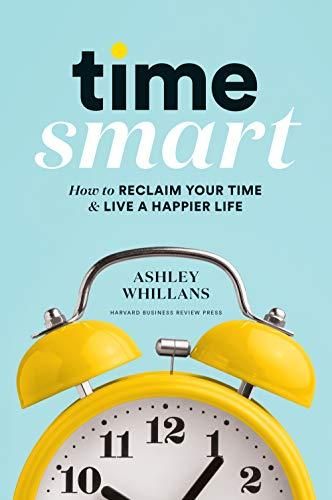Everyone knows that time is money. But time can be so much more, affording you fond memories, enriching experiences and profound connections with others. Behavioral scientist Ashley Whillans highlights some unexpected upsides of seeking happiness – and how exactly you should pursue it.

If Money Isn’t Everything, What Is?
Orson Welles’s Citizen Kane traces the rise of its hero, Charles Foster Kane, from obscurity to the heights of wealth and influence. Although this may sound like a happy story, Kane’s trajectory is tragic. A seemingly unimportant memory from his humble childhood haunts him; a moment of idle play and uncomplicated joy. By the end of his life, Kane laments, “If I hadn’t been very rich, I might have been a really great man.”
People often see this story as a cautionary tale about the corrupting influence of power, or as a political allegory. But it is also about money and time, and how the former can distort the latter.
The tension between money and time is at the heart of behavioral scientist and Harvard School of Business assistant professor Ashley Whillans’s book Time Smart: How to Reclaim Your Time and Live a Happier Life. Squarely in the sunny self-help category, the book has no claim to the pathos of Citizen Kane, but it does offer many concrete suggestions about how you can prioritize your time and focus on what matters.
“Time Poverty”
In the first part of the book, Whillans introduces a concept called “time poverty.” The terminology might seem a bit insensitive to people who live in actual, material poverty, but it’s an understandable metaphor, and, as Whillans notes, the condition impacts all economic strata. Whillans’s research shows that many people are time poor, prioritizing money, power, and conventional markers of success over leisure time, personal enrichment time, or time spent with family and friends. Many people believe that money and time are inversely related: If you have enough money, you don’t have time to enjoy it; if you have enough time, you don’t have enough money to enjoy it.
Long blocks of free time we used to enjoy are now interrupted constantly by our smart watches, phones, tablets and laptops.Ashley Whillans
Improvements in technology make tasks easier to complete, but they also increasingly blur the line between people’s work and private lives. Hyperconnectivity diminishes people’s ability to pay attention and truly relish the moment.
Money Doesn’t Buy Happiness
Prioritizing work and money may fatten a person’s bank account, but it diminishes his or her memories. Take the example of a wife who prioritized her work to the point that she skipped a once-in-a-lifetime skiing trip with her husband. Years later, when asked what was so important about the work, the wife could not recall.
Chasing professional success at all costs is a cause of, and not a solution to, our feeling of having too much to do and not enough time to do it.Ashley Whillans
As Kane learned the hard way, the pursuit of wealth is not what defines someone. It doesn’t make life worth living. While a certain level of wealth is necessary to meet a person’s basic needs, earning more does not buy happiness. Indeed, higher earnings are often associated with decreased happiness, both because of overwork and because we simply continue to envy people with even more money.
Whillans also convincingly argues that the negative effects of time poverty extend beyond the personal. Feeling pressed for time can contribute to poor health outcomes through insufficient exercise and poor dietary choices. These ultimately hurt workplace productivity and burden the national health care system with significant costs.
Whillans offers many suggestions that business professionals can act on to overcome the addiction to work and money. For example, simply remembering to evaluate how decisions will impact your personal time and happiness is a good starting place.
Some of Whillans’s tips come from a place of relative privilege that may not be accessible or practicable to every worker, such as her suggestion to negotiate a flexible work schedule. Others, such as listening to audiobooks while commuting, may seem a bit obvious. And her guidance to disconnect from technology whenever possible is, nowadays, so commonplace as to be clichéd, so much so that the term “digital detox” appears in some dictionaries. Still, every reader could use a reminder of how small behavioral changes can shift their broader mind-set (and vice versa). Some of Whillans’s tips run refreshingly and reassuringly counter to typical career advice. Don’t take that promotion, she says, if it means spending less time with your family and friends.
The Role of Organizations and Governments
Whillans also targets the management side of the equation. She argues that businesses and organizations perform better and reduce turnover when employees have a healthy work-life balance. Prioritizing time over money can also help eliminate wasteful administration, unnecessary meetings, excessive paperwork and poorly planned infrastructure. This elimination can, in turn, save millions of dollars.
Whillans also recommends a few concrete ways in which businesses can contribute to a culture that values time over money, such as by actively penalizing employees who respond to emails outside of normal work hours. Some of her proposals – such as doing away with deadlines entirely – might not be feasible in every circumstance, but they are at least specific and potentially actionable. She also discusses ways that employees can help influence management and improve workplace policies.
Companies that let workers decide where and when to do their jobs – whether in another city or in the middle of the night – have workers who are happier, more productive and less likely to quit.Ashley Whillans
Whillans ends with the broadest view possible, making a few policy recommendations for how governments can better support their citizens and improve their quality of life. The suggestions are familiar, covering topics like a federal minimum threshold of vacation days, mandatory maternity and paternity leave, as well as more public transit options and traffic reduction through rush-hour tolls. She doesn’t discuss the role of unions and other forms of labor activism, however, which seems like a notable omission.
Whillans might, perhaps ironically, seem a bit overly ambitious in seeking to tackle this seemingly intractable problem. After all, Citizen Kane premiered in 1941, and is just as relevant today as it was then. Nonetheless, her tips are generally sound. The book might just serve as a push readers need to enact positive change not only in their own lives, but also in their workplaces and perhaps even in American society.
Time Runs Out
Whillans knows that her audience consists of business people who, short on time, want snappy solutions, memorable and upbeat tips. While perhaps not as eloquent or memorable as Welles’s script, she clearly and concisely gets to the heart of the problem with the American work ethic: “No matter our age, education or income, we share the same reality: None of us knows how much time we have left. One day, time runs out and tomorrow never comes.”












